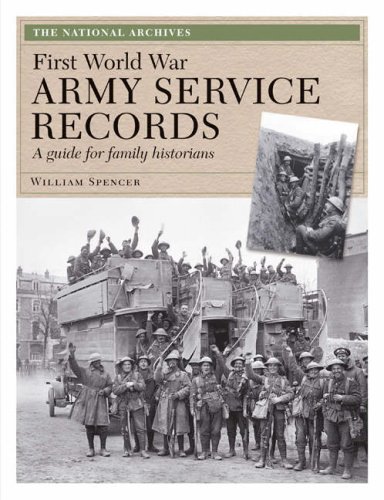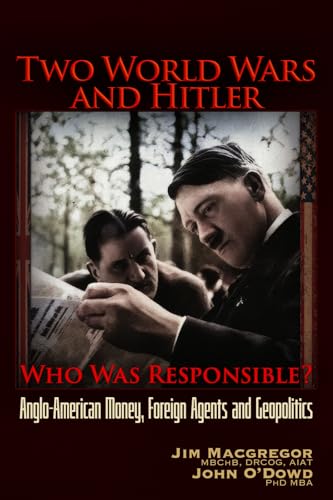
First World War Army Service Records
by William Spencer
"A Guide for Family Historians"
Popularity
1.89 / 5
* A book's popularity is determined by how it compares to all other books on this website.
Where to buy?
Buy from Amazon* If you buy this book through the link above, we may receive a small commission at no extra cost to you.
First World War Army Service Records by William Spencer
Details
War:
World War I
Perspective:
Researcher
True Story:
Yes
Biography:
No
Region:
Europe
Page Count:
172
Published Date:
2008
ISBN13:
9781905615261
Description
Brief Summary
First World War Army Service Records by William Spencer provides an in-depth guide to the extensive archive of World War I records held by the National Archives. The book covers a wide array of documents, including personal service records of officers and enlisted men, campaign medals, decorations for gallantry and meritorious service, and records related to courts martial and casualties. It also extends to files on Dominion forces, the Indian Army, and various auxiliary services like the Women's Army Auxiliary Corps and the Royal Flying Corps. Spencer's work is a comprehensive resource for historians, researchers, and anyone interested in the military history of World War I.
Main Themes and Topics
The book focuses on navigating the vast and complex records of World War I military service. Themes include understanding the structure and types of records available, from personal military files to unit war diaries and trench maps. Spencer sheds light on the roles and contributions of various military and auxiliary units across different operational theaters, such as the Western Front, Gallipoli, and Mesopotamia. The book also addresses the challenges of interpreting historical documents and making connections between disparate records to build a fuller picture of an individual's service history.
Writing Style and Tone
William Spencer writes in a factual, informative style that aims to educate and guide readers through the detailed process of accessing and interpreting military records. His tone is authoritative yet accessible, making complex archival material approachable for both amateur historians and professional researchers. The book is structured methodically, allowing readers to easily navigate its comprehensive content.
Criticism
One of the criticisms that could be noted about Spencer's work is that due to the sheer volume of material covered, some readers may find the content overwhelming, especially those new to military historical research. The depth of detail might require readers to invest significant time in study to fully leverage the information provided. However, this is also a testament to the thoroughness of the resource.









